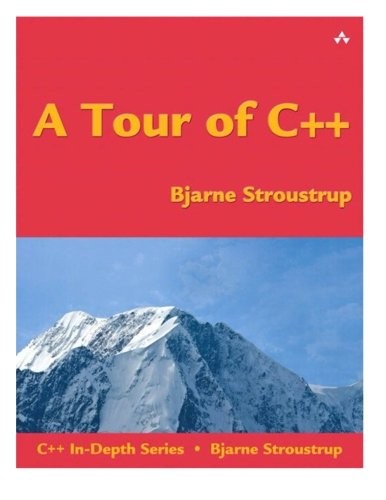Paperback, 192 pages
English language
Published Sept. 15, 2013 by Addison-Wesley.

Paperback, 192 pages
English language
Published Sept. 15, 2013 by Addison-Wesley.
The C++11 standard allows programmers to express ideas more clearly, simply, and directly, and to write faster, more efficient code. Bjarne Stroustrup, the designer and original implementer of C++, thoroughly covers the details of this language and its use in his definitive reference, The C++ Programming Language, Fourth Edition . In A Tour of C++ , Stroustrup excerpts the overview chapters from that complete reference, expanding and enhancing them to give an experienced programmer–in just a few hours–a clear idea of what constitutes modern C++. In this concise, self-contained guide, Stroustrup covers most major language features and the major standard-library components–not, of course, in great depth, but to a level that gives programmers a meaningful overview of the language, some key examples, and practical help in getting started. Stroustrup presents the C++ features in the context of the programming styles they support, such as object-oriented and generic programming. His tour …
The C++11 standard allows programmers to express ideas more clearly, simply, and directly, and to write faster, more efficient code. Bjarne Stroustrup, the designer and original implementer of C++, thoroughly covers the details of this language and its use in his definitive reference, The C++ Programming Language, Fourth Edition . In A Tour of C++ , Stroustrup excerpts the overview chapters from that complete reference, expanding and enhancing them to give an experienced programmer–in just a few hours–a clear idea of what constitutes modern C++. In this concise, self-contained guide, Stroustrup covers most major language features and the major standard-library components–not, of course, in great depth, but to a level that gives programmers a meaningful overview of the language, some key examples, and practical help in getting started. Stroustrup presents the C++ features in the context of the programming styles they support, such as object-oriented and generic programming. His tour is remarkably comprehensive. Coverage begins with the basics, then ranges widely through more advanced topics, including many that are new in C++11, such as move semantics, uniform initialization, lambda expressions, improved containers, random numbers, and concurrency. The tour ends with a discussion of the design and evolution of C++ and the extensions added for C++11. This guide does not aim to teach you how to program (see Stroustrup’s Principles and Practice Using C++ for that); nor will it be the only resource you’ll need for C++ mastery (see Stroustrup’s The C++ Programming Language, Fourth Edition , for that). If, however, you are a C or C++ programmer wanting greater familiarity with the current C++ language, or a programmer versed in another language wishing to gain an accurate picture of the nature and benefits of modern C++, you can’t find a shorter or simpler introduction than this tour provides.